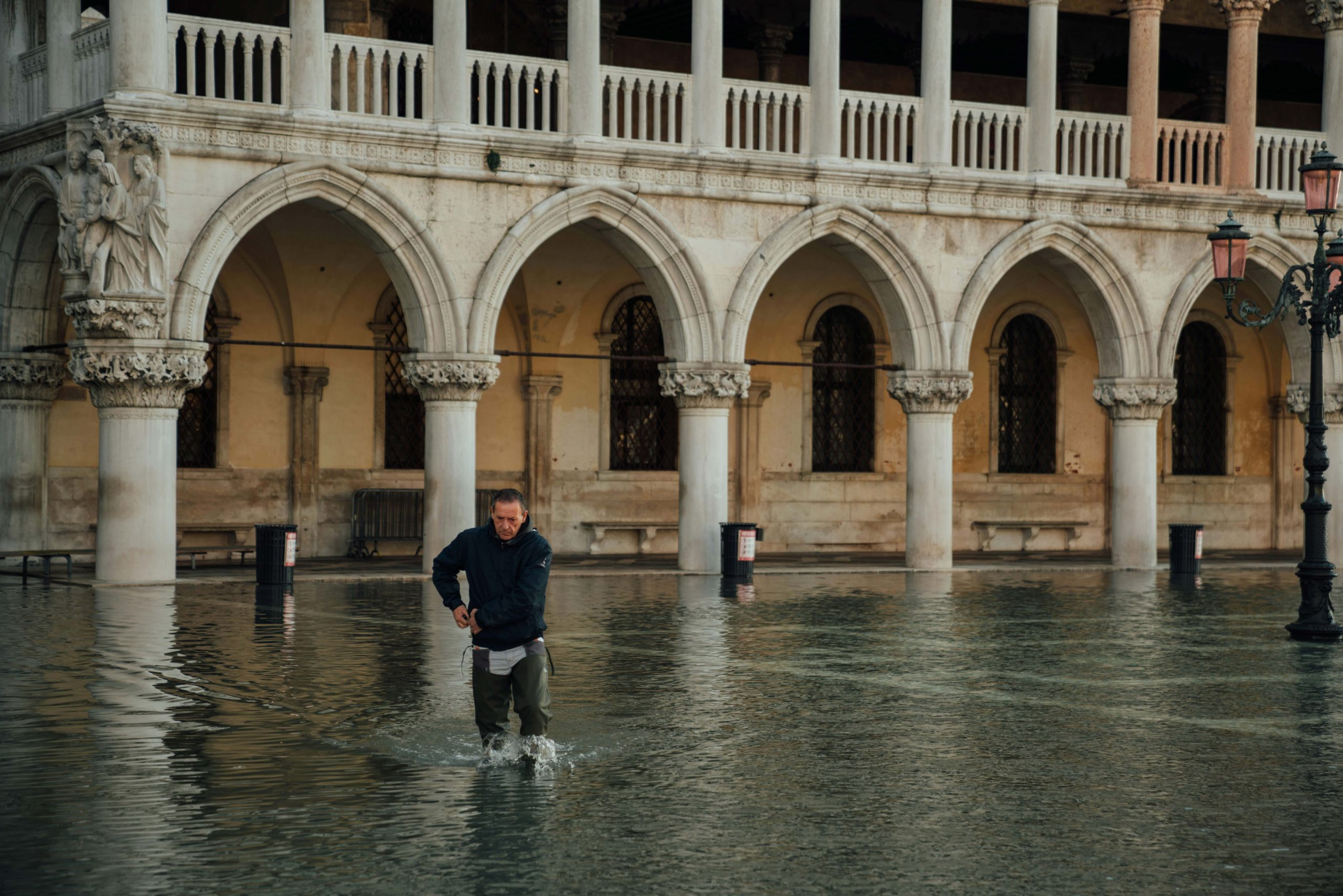
Travel Editor Lydia Don exposes the damning truth about Venice’s over tourism problem, outlining the impacts unsustainable tourism continue to have on a once locally-loved city
Venice has been a hotspot for couples, families, and solo travellers over the past few decades. The city’s ribboning canals, mesmerising architecture and romantic atmosphere have famously attracted the globe’s romantics and history fanatics. However, its previously unspoilt beauty has been crumbling as every new visitor arrives to Italy’s famous, or rather unfortunately infamous, “Floating City”.
Venice has become an unfortunate example of ‘over-tourism’, an idea popularised in the last decade which refers to instances of visitor numbers overwhelming a particular geographical area where the environmental detriment outweighs positive economic impacts that tourism can bring. Though over-tourism exposes elements of tourism that have a negative impact on a country, in many instances these downsides exist in tandem with economic benefits a country experiences, as well as exposure as a bucket list destination on social media. Venice, sadly, is not one of these examples.
Environmental Impact
The environmental impact of tourism is widely recognised as a serious problem in need of strict regulation by the world’s governments, though governmental pledges to reduce carbon emissions and rising sea levels seem tokenistic when looking at Venice. Countless images have surfaced of family homes, businesses and cultural artefacts disappearing underwater, covered with a blanket of litter floating above them. This acts as a telling representation of the menacing over-tourism problem that has come to define Venice. The city is not merely sinking metaphorically into a depressive state desperate for breathing space, but is sinking literally and uncontrollably in real time. Not only this, but rising sea levels cause habitat loss on land and at sea. As cruise ships dock into Venice Cruise Port – a space blatantly too small for the monster ships clogging them up – marine wildlife is killed by the boats’ emissions. Although cars are barred from Venice, the cruise ship conundrum negatively overcompensates for this ban.
“Governmental pledges to reduce carbon emissions and rising sea levels seem tokenistic when looking at Venice
Social Impact
Rising sea levels is not the only factor driving locals away from Venice. People who have lived in the city for their whole lives feel they are being forced out of their beloved home as tourists overwhelm the streets and thwart their ability to live normal lives. Tourists are flooding Venice in and out of school holiday times, leaving locals with no way of escaping the crowds their city’s authenticity seems to disappear into. Additionally, the rising prices of everyday services, restaurants, cafés, and supermarket goods renders living here unsustainable for many who yearn for the unspoiled and affordable Venice of years before. This inevitably turns Venice into a city of Instagram-obsessed tourists interested only in capturing the moment through their phones, fuelled by their need for social gratification to avoid an attention deficit. Many appear disinterested in the actual history of the city, meaning the interesting aspects of Venice locals previously enjoyed descend into irrelevancy. Venice is losing its appeal to locals, and once the tourists get bored and abandon the city, what is left? A soulless expanse of dilapidated buildings washed away by the water that used to encase and protect it. Ultimately, the destruction does not concern tourists who can leave the city when their holiday ends, blissfully unconcerned with the impact they have unashamedly had on the buildings and overall spirit of Venice. They exercise no consideration for the locals who are left to clean up the mess they themselves never made.
“Many appear disinterested in the actual history of the city, meaning the interesting aspects of Venice locals previously enjoyed descend into irrelevancy
Economic Impact
Upon first glance of St. Mark’s Square (Venice’s main square) teaming with visitors photographing Saint Mark’s Basilica and enjoying their gelato, you are led to believe that Venice’s economy is thriving. However, appearances fail to tell the full story. Whilst select businesses that appeal to tourists – restaurants, cafes, souvenir shops, to name a few – do have a chance of survival amidst the over-tourism pandemic, an abundance of family-run, decade-old businesses previously thriving in a once localised community are dying out as they do not appeal to tourists’ desire for convenience and, often, familiarity.
“Family-run restaurants have been dominated by the hegemonic chains we are most familiar with across the globe, contributing to Venice’s continually depleting culture
Small convenience stores locals have bought groceries from for years have been forced to close as tourists can afford to dine at restaurants instead of cooking for themselves. Even family-run restaurants have been dominated by the hegemonic chains we are most familiar with across the globe, contributing to Venice’s continually depleting culture. This issue of culture loss is exacerbated when tourists photograph the likes of Doge’s Palace, but fail to pay an entry fee as they chase Instagram followers instead of cultural enlightenment.
Since the Coronavirus Pandemic hit the globe in 2020, the true devastation Venice has faced, because of over-tourism, has been brought to light by the few locals who were confined to the city during that time. They captured the erosion, littering, water damage, and graffiti sucking the history, culture, and authenticity out of Venice. The streets, abandoned. The waterways, solitary and all-consuming. The shop doors, shut. The family homes, disintegrating. Venice is not a “Floating City”, it is a fragile city.
Read more from Travel here:
 Exchange Student at the National University of Singapore
Exchange Student at the National University of Singapore 
Comments